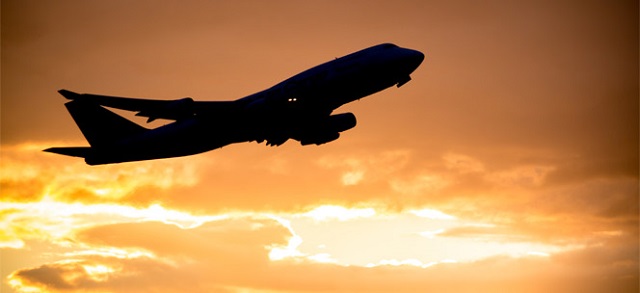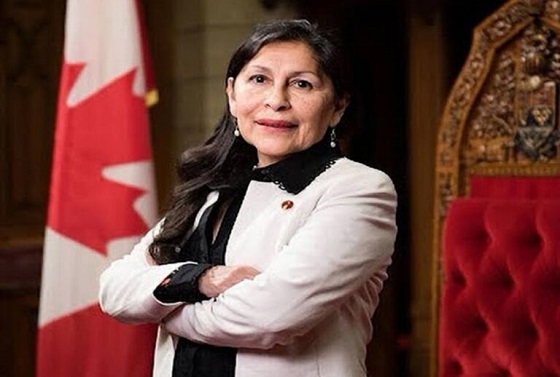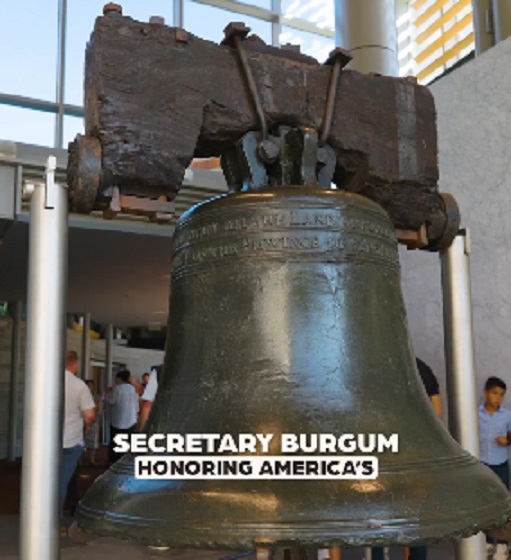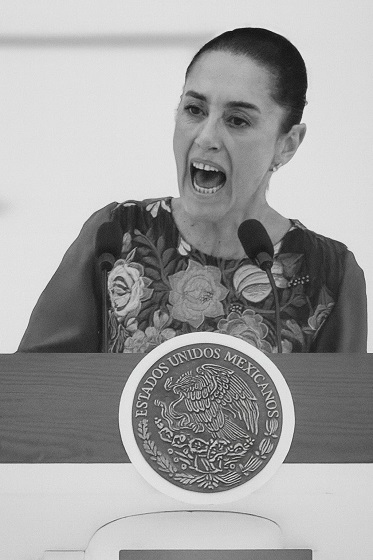Economy
Feds spend $3 million to fly 182 politicians and bureaucrats to climate conference

From the Canadian Taxpayers Federation
Author: Ryan Thorpe
Feds trip to COP28 in Dubai cost $3 million
The cost for Canada to send hundreds of people to COP28 in Dubai has doubled, rising to nearly $3 million, according to government records obtained by the Canadian Taxpayers Federation.
Included in those costs is $1.3 million the federal government dished out to host a “Canada Pavilion” at the summit, which featured a rapper performing a song on “climate disinformation,” while giving a shoutout to Environment Minister Steven Guilbeault.
“Nothing screams fighting climate change like flying around the world burning through jet fuel and millions of tax dollars,” said Franco Terrazzano, CTF Federal Director. “Here’s a crazy idea: maybe the feds don’t need to spend $3 million flying 182 politicians and bureaucrats to Dubai.”
The federal government paid for at least 182 people to go to COP28, held from Nov. 30 to Dec. 12, 2023, in Dubai, United Arab Emirates.
A previous report from the National Post pegged the cost for Canada’s delegation at $1.4 million.
But the bill now sits at $2,954,188, including $825,466 for transportation, $472,570 for accommodations and $295,455 for meals and incidentals, according to the records.
The records indicate the cost could rise even higher, as certain invoices and travel claims “have yet to be processed.”
Costs included $1.3 million for a “Canada Pavilion” to “showcase the breadth of Canadian climate leadership.”
At the Canada Pavilion, a Canadian rapper known as Baba Brinkman – the son of Liberal MP Joyce Murray – performed a rap on “climate disinformation.”
“Climate disinformation, get that immunization, the vaccine for bad meme infiltration,” Brinkman rapped. “Climate misinformation, it leads to polarization, which leads to radical conspiracy ideation.”
Environment Minister Steven Guilbeault also received a shoutout during Brinkman’s rap.
“Really? Hosting a rapper half-way around the world to drop rhymes at a government podium will help the environment?” Terrazzano said.
The records were released in response to an order paper question from Conservative MP Dan Mazier (Dauphin-Swan River-Neepawa).
Most of the hotel expenses came from the Dubai Marriott and the Premier Inn at the Dubai Investment Park, with rooms coming in between $150 and $400 per night.
The most expensive digs was a $816-per-night suite at the Pullman Dubai Jumeriah Lakes Towers, a “five-star hotel offering upscale accommodations.”
The Canadian delegation also handed out $650 worth of gifts during the trip.
Business
Higher carbon taxes in pipeline MOU are a bad deal for taxpayers

The Canadian Taxpayers Federation is criticizing the Memorandum of Understanding between the federal and Alberta governments for including higher carbon taxes.
“Hidden carbon taxes will make it harder for Canadian businesses to compete and will push Canadian entrepreneurs to shift production south of the border,” said Franco Terrazzano, CTF Federal Director. “Politicians should not be forcing carbon taxes on Canadians with the hope that maybe one day we will get a major project built.
“Politicians should be scrapping all carbon taxes.”
The federal and Alberta governments released a memorandum of understanding. It includes an agreement that the industrial carbon tax “will ramp up to a minimum effective credit price of $130/tonne.”
“It means more than a six times increase in the industrial price on carbon,” Prime Minister Mark Carney said while speaking to the press today.
Carney previously said that by “changing the carbon tax … We are making the large companies pay for everybody.”
A Leger poll shows 70 per cent of Canadians believe businesses pass most or some of the cost of the industrial carbon tax on to consumers. Meanwhile, just nine per cent believe businesses pay most of the cost.
“It doesn’t matter what politicians label their carbon taxes, all carbon taxes make life more expensive and don’t work,” Terrazzano said. “Carbon taxes on refineries make gas more expensive, carbon taxes on utilities make home heating more expensive and carbon taxes on fertilizer plants increase costs for farmers and that makes groceries more expensive.
“The hidden carbon tax on business is the worst of all worlds: Higher prices and fewer Canadian jobs.”
Business
Man overboard as HMCS Carney lists to the right

Steven Guilbeault, Heritage Minister and Quebec lieutenant, leaves cabinet this week with his chief of staff, Ann-Clara Vaillancourt. He resigned on Thursday.
Steven Guilbeault’s resignation will help end a decade of stagnation and lost investment.
Steven Guilbeault’s resignation will come as no surprise to Mark Carney – save, perhaps, for the fact that it took so long.
The former environment minister quit on Thursday evening, after the prime minister unveiled his memorandum of understanding with Alberta premier, Danielle Smith. That deal is aimed at creating the conditions to build an oil pipeline to the West Coast and encouraging new investment in the province’s natural gas electricity generation sector. In doing so, Carney cancelled the oil and gas emissions cap and the clean electricity regulations that Guilbeault had been instrumental in constructing and imposing.
Fly Straight is a reader-supported publication.
To receive new posts and support my work, consider becoming a free or paid subscriber.
The former environmental activist couldn’t accept the continued expansion of fossil fuel production and so walked away after six years in cabinet.
In his resignation statement, he said he strongly opposes the MOU with Alberta because it was signed without consultation with the province of British Columbia and First Nations.
He said removing the moratorium on oil tankers off the West Coast would increase the risk of accidents and suspending clean electricity regulations, which blocked new gas generation, will result in an “upwards emissions trajectory”.
In particular, he was upset about the expansion of federal tax credits to encourage enhanced oil recovery, a carbon storage technology that captures carbon dioxide from industrial emitters and injects it back underground. Guilbeault considered this a direct subsidy for oil production – a business he said he hoped the government was exiting.
In a Twitter post, I called Guilbeault “anti-Pathways” – that is, opposed to the giant carbon capture and storage development that Carney views as crucial to offsetting the building of a new pipeline.
One of Guilbeault’s defenders said he is not anti-Pathways, and that, in fact, he was part of the trifecta, along with Chrystia Freeland and Jonathan Wilkinson, who negotiated the details on the investment tax credit “that will pay 50 percent of the cost of construction to a bunch of rich oil companies”. To me, that showed Guilbeault’s (and his supporters) true colours. If he wasn’t anti-Pathways, he certainly wasn’t pro.
When he said he would back Carney’s leadership bid in January, I wrote that it was an endorsement the aspiring Liberal leader could do without.
The now-prime minister always had in his mind a plan to build, including fossil fuel production, offset by technology adoption and a stronger industrial carbon price in Alberta. Even then, he made clear he was prepared to be pragmatic in a time of crisis.
Guilbeault’s plan was to regulate the industry to death.
It was always going to end badly but, as Carney told me last winter, Guilbeault provided crucial support on the ground in Quebec and any politician’s first responsibility is to win.
Guilbeault should be respected for his deep convictions on climate change and his commitment to leaving a better world to our children.
But he should never have been allowed to dictate environmental policy in this country. He refused to view natural gas as a bridging fuel in the energy transition in a country that has reserves of a resource that will, at current production levels, last 300 years.
He made clear his lack of enthusiasm for small modular nuclear reactors and new road-building.
And he pushed an oil and gas emissions cap that he knew would hit production levels and further (if that were possible) alienate Western Canadians.
His departure – and that of Freeland – give Carney scope to pursue what he hopes is a transformative response to not only Donald Trump, but to federal policies that amounted to driving with the handbrake on. Carney has made his intent clear – to optimize Canada’s resource wealth, while attempting to minimize emissions.
Five years ago, Trudeau was nearly tarred and feathered during a visit to Calgary; Carney received two standing ovations in the same town yesterday.
For too many years under the Trudeau/Freeland duopoly the plan was to redistribute the pie. Now it is clearly about wealth creation.
In my National Post columns, I have been scathing about some of the things the Carney government has done, as is appropriate for someone whose prime directive is the public interest. The decisions to recognize a Palestinian state; apologize to Trump for the Ontario “Ronald Reagan” ad; announce a bunch of major projects that were so advanced they didn’t need to be fast-tracked; split spending into the confusing binary of “operating” or “capital”; and visit the United Arab Emirates on a trade mission in the midst of a genocide in Sudan that the Emiratis had helped to fund were all, to me, missteps.
But, so far, Carney has got the big things right. The budget and this MOU are auspicious moves aimed at ending a decade of stagnation and lost investment.
There is a new mood of anticipation in the country, summed up in the S&P/TSX index, which hit record highs this week on the back of energy and mining stocks. Canadian pension funds are taking another look at the domestic market, intrigued by the prospect of investing in the potential privatization of airports, for example.
Canada is feeling better. There has been a shift in the mindset from saying no to everything to being open to removing barriers that stop the private sector from investing.
Success and prosperity are not guaranteed. But stagnation need not be either.
Fly Straight is a reader-supported publication.
To receive new posts and support my work, consider becoming a free or paid subscriber.
-

 Agriculture2 days ago
Agriculture2 days agoHealth Canada pauses plan to sell unlabeled cloned meat
-

 Crime2 days ago
Crime2 days agoB.C.’s First Money-Laundering Sentence in a Decade Exposes Gaps in Global Hub for Chinese Drug Cash
-

 Crime2 days ago
Crime2 days agoFBI Seizes $13-Million Mercedes Unicorn From Ryan Wedding’s Narco Network
-

 Banks2 days ago
Banks2 days agoThe Bill Designed to Kill Canada’s Fossil Fuel Sector
-

 International2 days ago
International2 days agoAmerica first at the national parks: Trump hits Canadians and other foreign visitors with $100 fee
-

 armed forces1 day ago
armed forces1 day ago2025 Federal Budget: Veterans Are Bleeding for This Budget
-

 Business2 days ago
Business2 days agoFederal major projects list raises questions
-

 Crime2 days ago
Crime2 days agoMexico’s Constitutional Crisis










